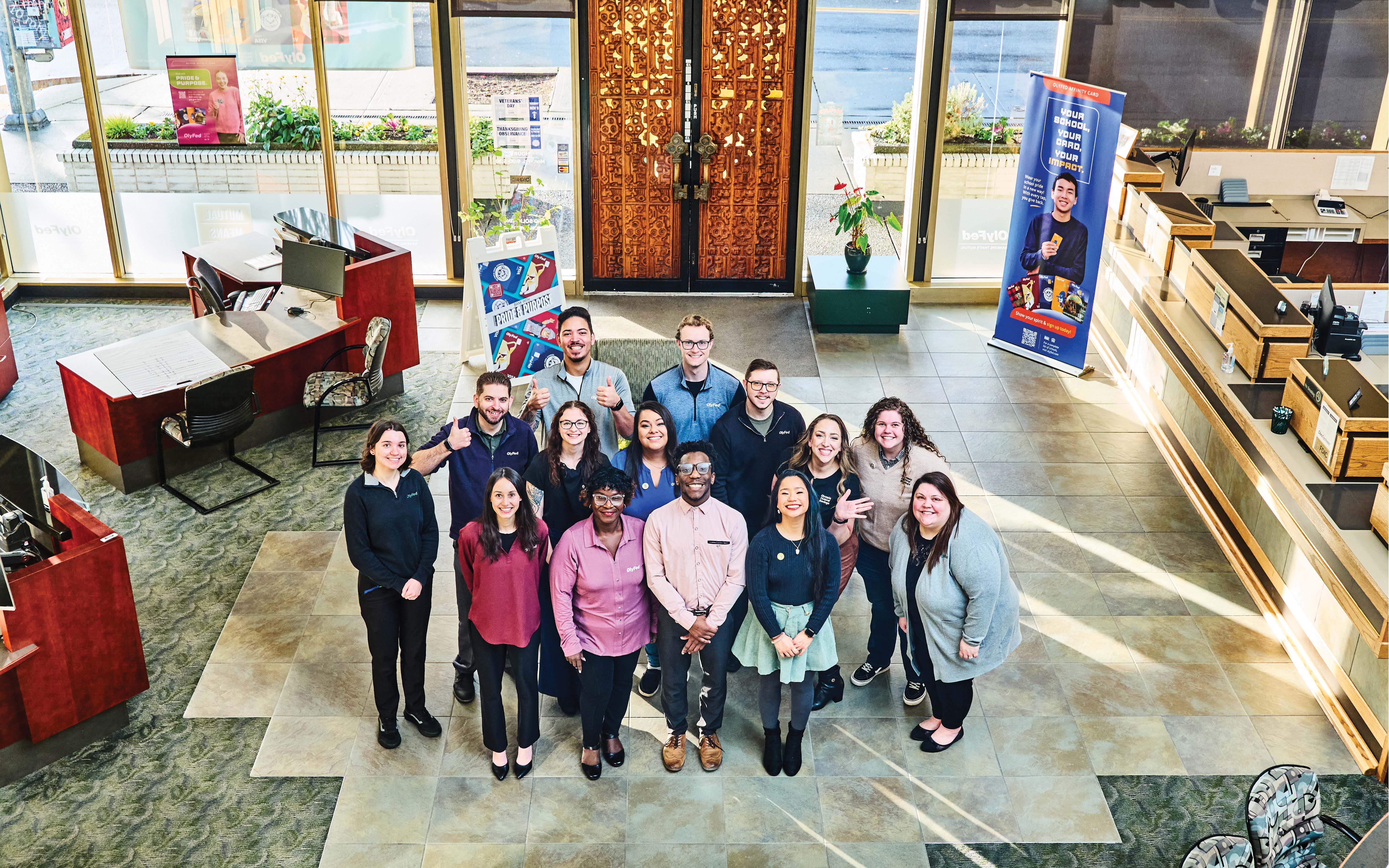Charles Henderson’s legacy as a businessman, politician and philanthropist continues to guide Alabama’s Troy Bank & Trust nearly a century after his death.
Troy Bank & Trust Banks Carries the Torch for its Founder
August 01, 2023 / By Taylor Hugo
Charles Henderson’s legacy as a businessman, politician and philanthropist continues to guide Alabama’s Troy Bank & Trust nearly a century after his death.

In Troy, Ala., an eternal flame burns at the gravesite of one of the city’s most notable residents, Charles Henderson. It’s a constant reminder of the impact the businessman-turned-governor had on Troy—both while he was alive and even today, 86 years after his death. And one of the biggest impacts has been on Troy Bank & Trust, which Henderson founded in 1906.
Born in Pike County, Ala., in 1860, Henderson was one of six children to Mildred and Jeremiah Henderson, a Civil War veteran and wealthy merchant. When Jeremiah died, 17-year-old Charles took over the family business with his brothers, setting them up for a lifetime full of success.
Inspired by his time as a stockholder and member of the board of directors for Farmers and Merchants Bank of Troy, Henderson—along with his brother J.C. Henderson and others—organized the Troy Bank & Trust on Sept. 5, 1906, with capital stock totaling $50,000.
“He was a very shrewd man,” says Allen Jones, attorney for Troy Bank & Trust. “He was diversified in so many different types of investments and businesses. He died at the tail end of the Great Depression, maintaining his wealth in a period of time when people were losing everything they had.”
A serial entrepreneur
Prior to his bank ownership, Henderson established the Charles Henderson Wholesale Grocery Company, owned stock and served in leadership positions for the Pea River Power Company, the Standard Telephone and Telegraph Company, the Standard Chemical and Oil Company, the Troy Compress Company and the Alabama Warehouse Company. But he was eager to be involved in the banking sector, too.
“[The Henderson brothers] wanted to have their own bank and, frankly, control it,” says Jones. “It was just another diversified business opportunity that was really growing back around the turn of the century. Most everything [Charles] Henderson touched was successful and made money.”
Henderson parlayed that business savvy into politics when he was elected mayor of Troy in 1886 at the age of 26, and later, as Alabama’s 35th governor in 1914. He lived up to his moniker, “Alabama’s Business Governor,” being instrumental in getting the state out of debt.
Having achieved financial success, Henderson used his money to invest in the community. And that’s the foundation Troy Bank & Trust is ultimately built on.
“We have remained true to his mission and his desire for the bank in that we take care of the people in our community,” says Jeff Kervin, who has been president and CEO of Troy Bank & Trust since 2010.
Throughout his career as a politician, Henderson used his platform to be a champion for better education and healthcare in the communities he served. While mayor, he helped establish Troy’s public school system and Troy State Normal College, now known as Troy University. Then, when Alabamians were rejected for the World War I draft due to poor health and illiteracy, Henderson pushed the legislature for additional funding for the state’s Department of Health and public schools.
He also wanted his own money to support the causes he and his wife Laura Montgomery, a teacher, were passionate about. When Henderson died in 1937, a portion of his estimated $3 million estate was used to form the Charles Henderson Charitable Trust, of which Troy Bank & Trust is still the trustee. Funds from the trust also helped build public schools in Pike County, providing educational opportunities for the general public. At one time, “every school in Pike County was built with [Henderson’s] trust funds,” says Jones. “His fingerprints are everywhere.”
“At the end of the day, we like to say we are banking with a higher purpose, because our purpose is the people of Pike County and the children of Pike County.”—Jeff Kervin, Troy Bank & Trust
Later, the focus of the trust, as outlined in his will, shifted to the Charles Henderson Memorial Association, which operates the Charles Henderson Child Health Center. The association is the perpetual recipient of the trust, allowing the health center to provide both medical and dental care to children, regardless of their families’ ability to pay.
According to Kervin, “At the end of the day, we like to say we are banking with a higher purpose, because our purpose is the people of Pike County and the children of Pike County.”
An infinite timeline
Today, many things are different about the Troy Bank & Trust that Henderson founded. It has grown to $1.4 billion in assets and 14 locations, adopted modern technology and now offers services such as wealth management—but its ownership has remained unwavering. In his will, Henderson transferred his 51.12% ownership of Troy Bank & Trust to the Charles Henderson Charitable Trust and stated that the bank’s stock can never be sold.
All that is to say that Troy Bank & Trust will remain the same people-oriented community bank it has always been.
“You’re not going to outgrow us, and we’re not going to sell out to one of the bigger corporate banks, so when we come into a new market, we’re there for the long haul,” says Kervin, noting that an infinite timeline forces the bank’s leadership to think long-term when it comes to strategic planning and measuring success.
“I think,” he adds, “that our ability to grow within our existing markets and add new markets is really going to help the bank continue to prosper and turn into things that even Charles Henderson could not have imagined in 1937.”
Subscribe now
Sign up for the Independent Banker newsletter to receive twice-monthly emails about new issues and must-read content you might have missed.
Sponsored Content
Featured Webinars
Join ICBA Community
Interested in discussing this and other topics? Network with and learn from your peers with the app designed for community bankers.
Subscribe Today
Sign up for Independent Banker eNews to receive twice-monthly emails that alert you when a new issue drops and highlight must-read content you might have missed.
News Watch Today

Join the Conversation with ICBA Community
ICBA Community is an online platform led by community bankers to foster connections, collaborations, and discussions on industry news, best practices, and regulations, while promoting networking, mentorship, and member feedback to guide future initiatives.













